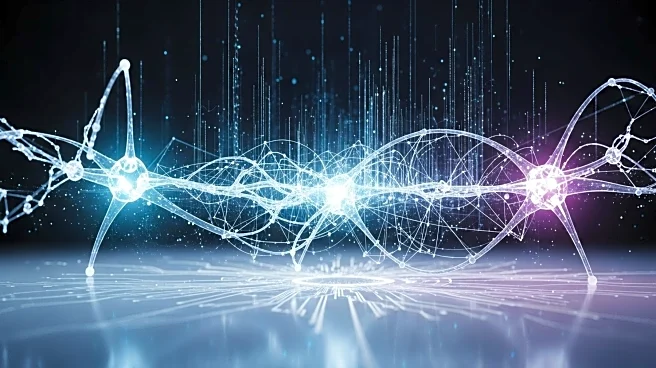What's Happening?
Anthropic, the company known for its AI model Claude, has reached a $1.5 billion settlement in a class-action lawsuit filed by a group of authors. The lawsuit, Bartz v. Anthropic, accused the company of using pirated books from 'shadow libraries' to train its AI systems. This settlement is the largest in U.S. copyright law history, highlighting significant concerns about the use of copyrighted materials in AI training. Despite the settlement, the legality of such practices remains contentious, as a federal judge had previously ruled in favor of Anthropic under the fair use doctrine. This case sets a precedent for future legal battles concerning AI and copyright issues.
Why It's Important?
The settlement underscores the growing tension between tech companies and copyright holders over the use of copyrighted materials in AI development. As AI models increasingly rely on vast datasets, including potentially copyrighted content, the legal framework governing these practices is under scrutiny. This case could influence future litigation and policy-making, affecting how AI companies approach data acquisition and model training. Authors and other content creators may seek stronger protections and compensation, while tech companies might face increased legal challenges and costs.
What's Next?
The resolution of this lawsuit may prompt other authors and copyright holders to pursue similar legal actions against AI companies. It could also lead to legislative efforts to clarify the fair use doctrine in the context of AI training. Tech companies might need to develop new strategies for data acquisition that comply with copyright laws, potentially increasing operational costs. The industry will likely watch closely for any changes in legal standards or new regulations that could impact AI development practices.
Beyond the Headlines
This settlement raises ethical questions about the balance between innovation and intellectual property rights. It highlights the need for a legal framework that supports technological advancement while protecting creators' rights. The case may also influence public perception of AI companies and their responsibility to respect copyright laws, potentially affecting consumer trust and industry reputation.









